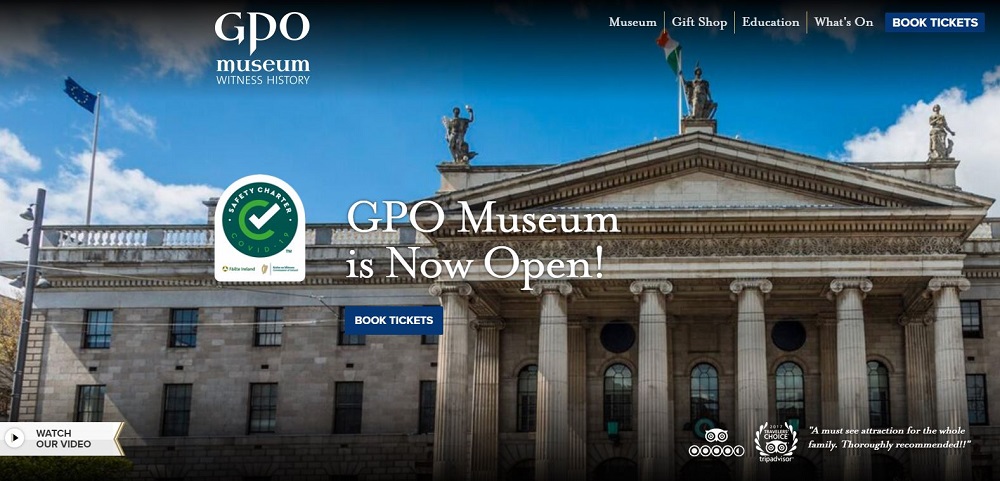We have harvested wood and bogs to heat and cook, we’ve tamed rivers to
provide electricity and now we have harnessed the wind, the oceans, and the sun
to create renewable energy but the ether has been a natural resource that we’ve
utilized successfully, using it to communicate and entertain ourselves for over
a century. The radio waves that help us land planes on the Aran Islands and
listen to the Cranberries have also been harnessed. According to the most
recent JNLR ratings 80.2% of the adult Irish population listen to Irish radio every
day. It is our heritage.
Our love affair with radio has propelled Irish radio history onto a
global stage. From Marconi’s Irish mother encouraging her son to experiment, to
the rebels of 1916 ensuring that Ireland became the first nation in the world
to be declared by radio to Clondalkin born Ronan O’Rahilly helping to
revolutionise radio with his Radio Caroline, we have a rich tapestry in radio
and it continues to evolve from analogue to digital to online.
We are now entering a celebration
of Irish radio milestones. 1923 and Ireland’s first licensed radio station 2BP
takes to the airwaves, 2BE is launched by the BBC in Belfast in 1924, the new
Free State inaugurates 2RN in 1926, while Cork sees the arrival of 6CK in 1927
and 1932 sees radio take the Eucharistic Congress to a global audience.
Are we remiss in not exhibiting our immense radio history? How will
scholars of the future discover how and why in this modern age of social media
that analogue radio listenership is still over eighty percent? Unlike many
nations of a comparable size, Ireland does not have a centralised radio archive
or museum both open to both donations and research. Our disregard of our
broadcasting heritage is shameful. The memories of those in front and behind
the microphone seems lost in the mists of time.
The largest radio and audio archive is RTE’s. While not complete, the
only recorded snippet of the opening nights broadcast comes courtesy of the BBC
who rebroadcast part of the opening night to the UK, it is an invaluable resource
but spending cuts within the broadcaster has seen its staffing levels and
importance reduced. An independently funded body should be put in charge of
maintaining, updating and making available all radio archives, including RTE,
commercial, local and community radio.
We have the archives; it
is scattered to the four corners of the island. We have a unique collection of
invaluable Irish radio artifacts gathering dust on shelves in the Cork City
Gaol Museum, a passion of the late Paddy Clarke, degrading as I write this
impassioned plea. Without County Louth born Fr. Nicholas Callan and his work on
the induction coil in the mid-19th century, Marconi may not have ended up
leaving Italy, his archives are in Maynooth University. Without the work of the
Irish Radio Transmitters Society to save the work of Colonel Meade Dennis, the
world’s first radio ham, another remarkable story would be lost. His equipment
was donated to the Computer and Communications Museum at NUIG. The RTE scripts
of the past are located at UCD. The Hurdy Gurdy Museum in Howth, a personal
achievement of the late Pat Herbert is a treasure trove of Irish radio history.
The Irish Pirate Radio Archive is located at Dublin City University. There is
the RTE archive, totally under resourced and haemorrhaging staff, a massive an
invaluable archive unfortunately for scholars hidden behind a pay wall. There
are the archives of the independent sector for which limited Sound and Vision
grant money is available. The archives of at first the IRTC, then the BCI,
later BAI and now Coimisiún na
Meán are
a vital thread to understanding and studying Irish radio history. This
scattered approach is diffused and disorganised and without a centralised
online guide. Our radio archives physical and audio should be housed in a
dedicated sound and audio archive like the Centre National de L’Audiovisuel in
Luxembourg or the German Broadcasting Archive.
Whether its Clifden in 1907, O’Connell Street in 1916, 2BP’s broadcasts
in 1923. 2RN in 1926, Radio Caroline in 1964, Radio Nova in 1981, Atlantic 252
in 1989 or Christmas FM in 2008, the physical and audio archives should be
centralised so that those who have kept safe their treasures over the decades
have somewhere to donate their collections. There should be strategic policy
developed for Irish radio archiving and history protection.
With the GPO relocating its offices from O’Connell Street to The Point,
perhaps the GPO could be used to house a unique collection of radio
memorabilia, artefacts, archives, and audio. We need action now as each and
every day new material is created, new memories are made and yet voices are
lost.


